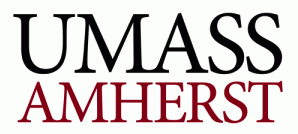 The University of Massachusetts at Amherst World Librarians Project brings educational resources to students and teachers in under-resourced areas. Recently, the program has expanded to various countries throughout Africa.
The University of Massachusetts at Amherst World Librarians Project brings educational resources to students and teachers in under-resourced areas. Recently, the program has expanded to various countries throughout Africa.
Currently, the project works with 20 schools and libraries in Malawi, providing them with portable servers and WiFi hotspot devices loaded with open-access educational resources that can be used by students and teachers in solar-powered computer labs. In addition, teachers and librarians can request specific information by sending a message to World Librarians via Twitter.
Recently, Charles M. Schweik, a professor in the UMass Amherst’s School of Public Policy and the department of environmental conservation, spoke about the project at the Association for Research on Civil Society in Africa conference in Nairobi. His presentation sparked interest among audience members in expanding the program into countries such as Kenya, Nigeria, Uganda, Zambia, and Rwanda. Before the conclusion of the conference, a new World Librarians Kenya chapter was formed. Additionally, Dr. Schweik sent the group home with a WiFi device he had brought to the conference. The device has already been put to use in classrooms in Kenya.
“I knew, based on our Malawi experience, that we had made an important innovation in the invention of the World Librarian social-technical system and workflow, but I was frankly overwhelmed by the positive response I received to the project,” Dr. Schweik said. “An important reason for the positive reaction is that we have invented a system that supports what teachers or library patrons without access to the internet in the Global South want, rather than a system where we in the Global North choose what they should read or watch or listen to. That message resonated greatly with the audience.”

